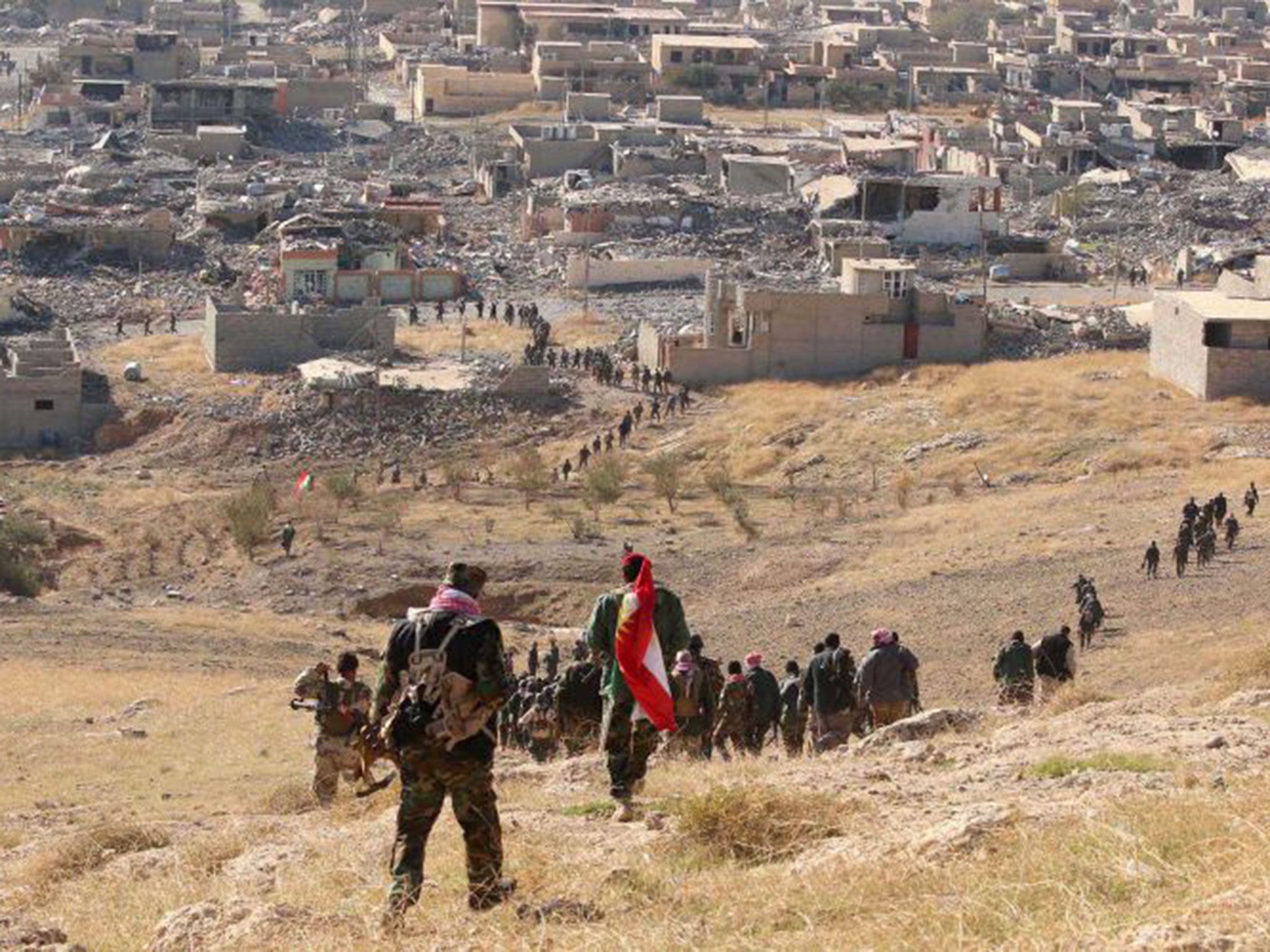Sinjar: Mass grave of Yazidi women executed by Isis discovered in Iraq
Locals described seeing clumps of hair, bones, money and keys in the mass grave

A mass grave believed to contain the remains of more than 70 members of Iraq's Yazidi minority has been unearthed east of Sinjar town, following an offensive against Isis by Kurdish forces.
Isis overran the Yazidi terrirority of Sinjar in north-west Iraq in August 2014 and began systematically killing, capturing and enslaving thousands of its inhabitants - in what the United Nations has said may have constituted an attempted genocide.
The mayor of Sinjar and local Yazidis who visited the site described clumps of hair, bones, money and keys which they believed to older women from the village of Kocho.
Younger women from the town were taken into sexual slavery, but the older ones were led behind away before gunfire was heard a short while later.
US President Barack Obama said he wanted to prevent a genocide of Yazidis when he first authorised air strikes against Isis militants, who consider the Yazidi minority devil worshippers.
The Yazidis are a religious sect whose beliefs combine elements of several ancient Middle-Eastern religions.
Kurdish forces retook Sinjar town on Friday in a two-day offensive backed by airstrikes from the US-led coalition.

Mahma Xelil, the mayor of Sinjar, said the grave would be left undisturbed so experts could analyse the remains and collect evidence for a case to recognise the atrocities inflicted on the Yazidi community as genocide.
Several mass Yazidi graves have already been uncovered in the area north of Sinjar mountain, which was taken by Isis in December last year.
The Kurdistan region's security council said 28 villages had been taken during Operation Free Sinjar and more than 200 square kilometres (77 square miles) freed from militant control.
Most of Iraq's Yazidi population are still living in camps in the Kurdistan region.
More than 2,000 women remain in Isis captivity.
Additional reporting by Reuters
Join our commenting forum
Join thought-provoking conversations, follow other Independent readers and see their replies
Comments
Bookmark popover
Removed from bookmarks